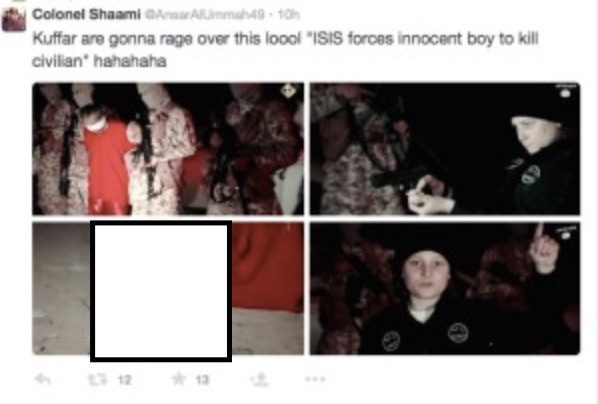A Canadian has been charged in the US with being an ISIS fighter, as well as providing material support to ISIS and producing, editing and disseminating ISIS material for approximately five years. He is alleged to be the narrator in some of the more gruesome ISIS videos of beheadings.
The Canadian, Mohammed Khalifa, was captured overseas by the Syria Democratic Forces in January 2019, and was recently transferred to the US. The Affidavit in support of the criminal complaint which sets out the allegations, is here.
Khalifa is also alleged to be aka Abu Ridwan Al-Kanadi and Abu Muthanna Al-Muhajir. The Affidavit in support of the criminal charges deposes that Khalifa swore an oath of allegiance to ISIS’ former leader, al Baghdadi (now deceased). He is alleged to have sent emails to a number of relatives, explaining that he went to Syria to do jihad (e.g., kill people). He said in a media interview that his work with ISIS, including the decision to travel to Syria to join ISIS, was done knowingly.
With respect to ISIS’ beheadings of aid workers and journalists, Khalifa essentially said that “a kuffar is a kuffar” and being a journalist or aid worker does not change their kuffar blood.
A kuffar is a derogatory term to refer to a non-believer.

The videos and PR material that Khalifa worked on were studio-quality with offensively-crafted content intended to recruit like-minded persons to renounce citizenship and join ISIS and/or commit terrorist acts in their home countries, and to shock and instill fear.
This tweet (below) which links to an ISIS video of a very young boy murdering an adult with the caption “kuffars are gonna rage”, appears to capture the essence of the media and PR machinery of ISIS.

The Syrian Defense Forces which captured Khalifa is comprised of members of the Kurdish People’s Protection Group, including the YPJ, the all-female division that played a material part in the defeat of ISIS. The YPJ was responsible for the capture of many of the men of ISIS and took control of them pending international resolution on the prosecution of terrorist foreigners in Syria and Iraq.
Other terrorists with ISIS have been sent to the US for redress in respect of the harm they caused as members of a terrorist group, and in those cases, there were legal issues raised in respect of the use of MLATs and the so-called prosecution by MLAT legal theory which is unlikely to arise in this case.